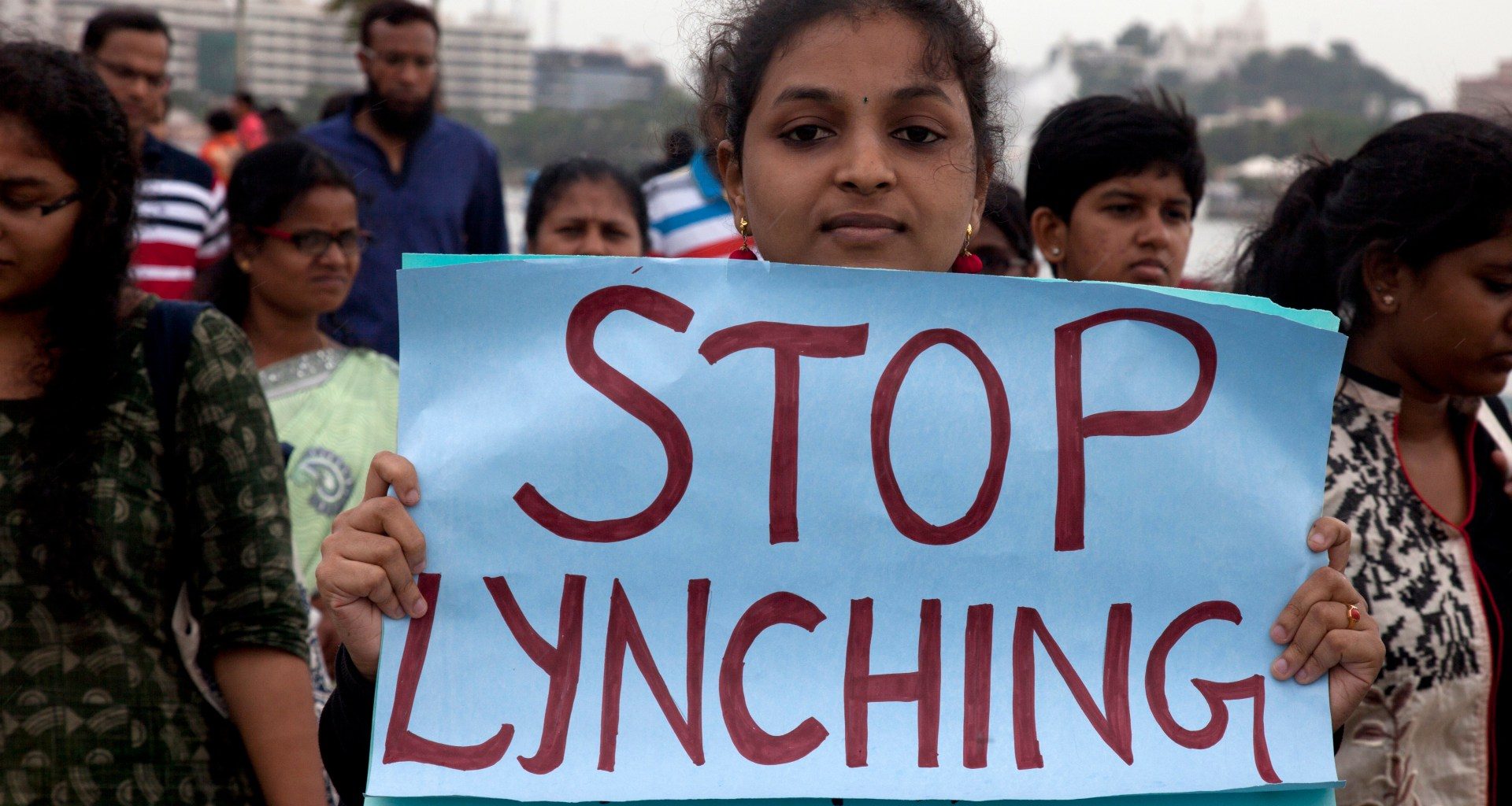
Aligarh, India — For Zakia Wali, Eid will never be joyous again. Instead, she says, the Muslim festival will serve as a horrific reminder of how her elder brother, Mohammad Fareed, was lynched in the town they have called home since they were born there 30 years ago.
“We were unable to give him a ghusl (full ablution), such was the condition,” recalled Wali, speaking with Al Jazeera from her home in Aligarh. “No one dared to count the injuries. Eid will only mean mourning now.”
Fareed, who made tandoori rotis – flatbreads cooked in giant clay ovens – at local eateries, was on his way back home a day after Eid when he was surrounded by a mob of Hindu hardliners.
More than a dozen men, armed with wooden sticks and iron rods, dragged the 35-year-old Fareed through the street and beat him to death as bystanders caught the horror on their phone cameras.
Aligarh, a city of 1.2 million people, is in Uttar Pradesh, India’s largest state, which is ruled by the Hindu majoritarian Bharatiya Janata Party (BJP) of Prime Minister Narendra Modi, under whose decade-long rule attacks on Muslims have skyrocketed.
On June 4, after the BJP lost its national majority in stunning results from India’s mammoth national election, opposition parties portrayed the outcome as a victory for the country’s democratic and secular traditions. Many analysts suggested that the results, and Modi’s dependence on coalition partners in government, would force moderation within the Hindu hardline groups that have long inhabited the fringes of the Rashtriya Swayamsevak Sangh – the BJP’s ideological mentor organisation – but gained some mainstream acceptance in recent years.
Yet three weeks later, a spate of anti-Muslim attacks in different parts of the country – including in states ruled by the Congress, the principal opposition party – has left India’s largest religious minority grappling with a very different reality.
Homes of families were razed over suspicion they were keeping beef – the meat of a cow, a holy animal to many Hindus – in their refrigerators. Three men were beaten to death after being tortured on a highway. A hospital treating patients was vandalised.
The incidents are related only by the faith of the victims.
These attacks, said Ali Khan Mahmudabad, a political scientist and historian at New Delhi’s Ashoka University, only underscore the folly of some of the analysis that followed the Indian election results.
“It will be a mistake to read the polls results as a victory for secularism,” said Mahmudabad, referring to the historically low numbers of Muslims voted into parliament in the recent election.
In fact, he said he expects “anti-Muslim sentiment violence” to increase across India as a way to “distract” from the myriad challenges that the country faces – unemployment and inflation were the top concerns for voters ahead of the just-concluded election.
A protest … to defend the mob
Mohammad Zaki, 30, was at home when he heard a crowd of neighbours bang on his door just past 10pm on June 18. “They showed me a video and some photos of a badly injured man,” he said. It was Fareed, his elder brother, who had been attacked less than a kilometre away from their home.
If the people who had come to alert him about the attack on his brother were neighbours, so too were the attackers themselves — a fact that is not lost on Zaki.
“I’m so scared that these kinds of people live among us in the same society,” he said. “They were just thirsty for Muslim blood.”
Zaki said that upon inquiring among locals, the family learned that a passer-by had called the police fearing for Fareed’s life. But Fareed died before he reached a hospital.
Aligarh police officials investigating the lynching told Al Jazeera that they are yet to pin down what led to the killing, though they have arrested at least six people so far and charged them with murder. The accused claim that Fareed was a thief, which his family and friends have denied.
“He was a very calm man, who never spoke ill about anyone,” said Mushtaq Ahmed, a childhood friend of Fareed’s. “He never even picked a nail that did not belong to him. They [the accused] are just lying because they have committed a horrifying crime.”
Soon after the arrests, the BJP, alongside far-right groups, staged a protest to defend the six accused people and demand their release. The town was shut down due to the protest.
“If a Muslim man enters to rob your home, will you garland him?” Shakuntala Bharti, an influential BJP leader and former mayor of Aligarh, told Al Jazeera.
“If the police do not investigate properly, we know our way around. It is Uttar Pradesh, where [the] bulldozer rules,” she added, referring to a tactic used in Uttar Pradesh and other BJP-governed states in which homes of Muslims are bulldozed. Amnesty International has described the use of bulldozers to demolish Muslim homes without any legal mandate as deliberate “punishment to the Muslim community”.
But for Wali, Fareed’s younger sister, the questions about her brother’s alleged crime is immaterial. “Even if he was a thief, slap him and hand him over to the police,” she said. “Why kill my brother like savages?”
For now, she said, she must focus on her bed-ridden 70-year-old mother Zubaida, who is suffering from paralysis. “Fareed would take her to the toilet, feed her breakfast and take care of her medicines,” she said. “The [elderly] woman’s only support is gone now.”
Since Fareed’s lifeless body was brought home, his mother’s blood pressure has shot up, said Wali.
Unlike a decade ago, Wali would celebrate festivals with her Hindu neighbours, she said, adding that that trust has been shattered irreparably. “We feel terror in Aligarh now, scared of our own neighbours.”
“Eid is our biggest festival, but now, Eid will only remind me of the sacrifice of my brother.”
‘Deafening silence’
Nearly 400km (240 miles) away, a photograph set off mob violence on June 17.
After Javed Qureshi uploaded a picture posing with the carcass of an animal as his WhatsApp status, a mob in Nahan town of the northern Himachal Pradesh state stormed his shop accusing him of slaughtering a cow.
In the presence of police personnel, the crowd barged into the locked shop (Qureshi lives in the state of Uttar Pradesh and had gone home for Eid) and looted it. The crowd then attacked another shop owned by Qureshi’s brother.
They warned other Muslim business owners to leave Nahan and called for their boycott.
Two days later, a police investigation found that the animal depicted in the photograph was not a cow. Still, the police arrested Qureshi for “hurting religious sentiments”, citing the “graphic” image he had used on WhatsApp.
Himachal Pradesh state is governed by the Congress party, which claims to stand by the secular principles enshrined in India’s Constitution.
“The silence of the opposition leaders on attacks on the Muslims is deafening,” said Nadeem Khan, the national secretary of the Association for Protection of Civil Rights (APCR), an advocacy group.
Mahmudabad, the political scientist, said the BJP had “pulled the centre of the Indian politics to the right”.
“So, the opposition has to do that as well and align with ‘soft Hindutva’,” he said. Hindutva is the political ideology of the BJP and its Hindu majoritarian allies.
The silence of opposition leaders will make Muslims rethink their voting patterns, said Khan. “There is no complaint about the BJP because there is no expectation from them, but we had high hopes from people claiming high secular credentials.”
Khan referred to Congress leader Rahul Gandhi’s promise to build a “shop of love in a market of hate”.
Gandhi, Khan said, cannot bring himself to “use the M-word”. “The opposition is complicit in disenfranchising the Muslim community,” he said.
Gandhi’s office did not respond to a request for comment.
Meanwhile, in a village in the BJP-governed Madhya Pradesh state about 640km (400 miles) away, authorities demolished the homes of 11 Muslim families suspected of keeping beef in refrigerators.
Al Jazeera reached out to two BJP national spokespersons for a response to concerns over anti-Muslim violence, but they refused to comment.
A known mob
Even hospitals are no longer sanctuaries of safety.
In the town of Medak in the southern state of Telangana, where Gandhi’s Congress controls the state government, administrators at the Minhaj Ul Uloom, a religious school for Muslims, bought 40 oxen worth $30,000 for collective sacrifice by more than 700 people on the occasion of Eid. They were wary: the BJP doubled its parliamentary seat tally in the state, from four to eight, and the school’s leaders were worried about triumphalism over that verdict turning into aggression against Muslims.
While the cattle were grazing in a field near the school, a far-right team of vigilantes ostensibly trying to stop cow slaughter caught the oxen on June 15. Arguments ensued. Police intervened and took the oxen while they determined whether the animals were cows. They were not and the cattle were later released.
Meanwhile, fighting broke out between a mob and those in the school.
Two injured Muslims were taken to the nearby Medak Orthopaedic Hospital, but the mob followed. Dr Surender Reddy was treating them in the hospital when he heard “loud noises and stone pelting outside”.
Terrified, Reddy’s staff appealed to the relatives of the injured inside the hospital to not react. But it was in vain. The relatives of the injured Muslims went outside and tried to fight the mob, which vandalised the hospital premises, including Reddy’s new car.
“I have never experienced anything like this because at least hospitals are spared by the mob,” Reddy told Al Jazeera. “It was just absolutely horrific.” Broken windowpanes and medical equipment littered the blood-stained floor when staff reopened the hospital three days later. The hospital now stays open for only a few hours a day.
“Some of the staff is yet to come back since the incident,” he said. “They are terrified.”
Since the attack on the hospital, some of the members of the mob apologised to Reddy, he said. Meanwhile, Telangana police have arrested 36 people, including 13 members of the BJP.
The attacks in Medak, Aligarh and Nahan – in states governed by both the BJP and the Congress – represent “a reaction to the electoral outcome”, said Khan of the APCR.
“The message [from Hindu majoritarian groups] is unified: ‘We are still all-powerful and will not cede any space’.”
Khan said that Muslims were increasingly being pushed towards second-class citizenship in India. “There is no value in a Muslim’s life today,” he said. “You feel insecure even inside your house as a Muslim in India now.”
Read More: World News | Entertainment News | Celeb News
Al Jazeera








